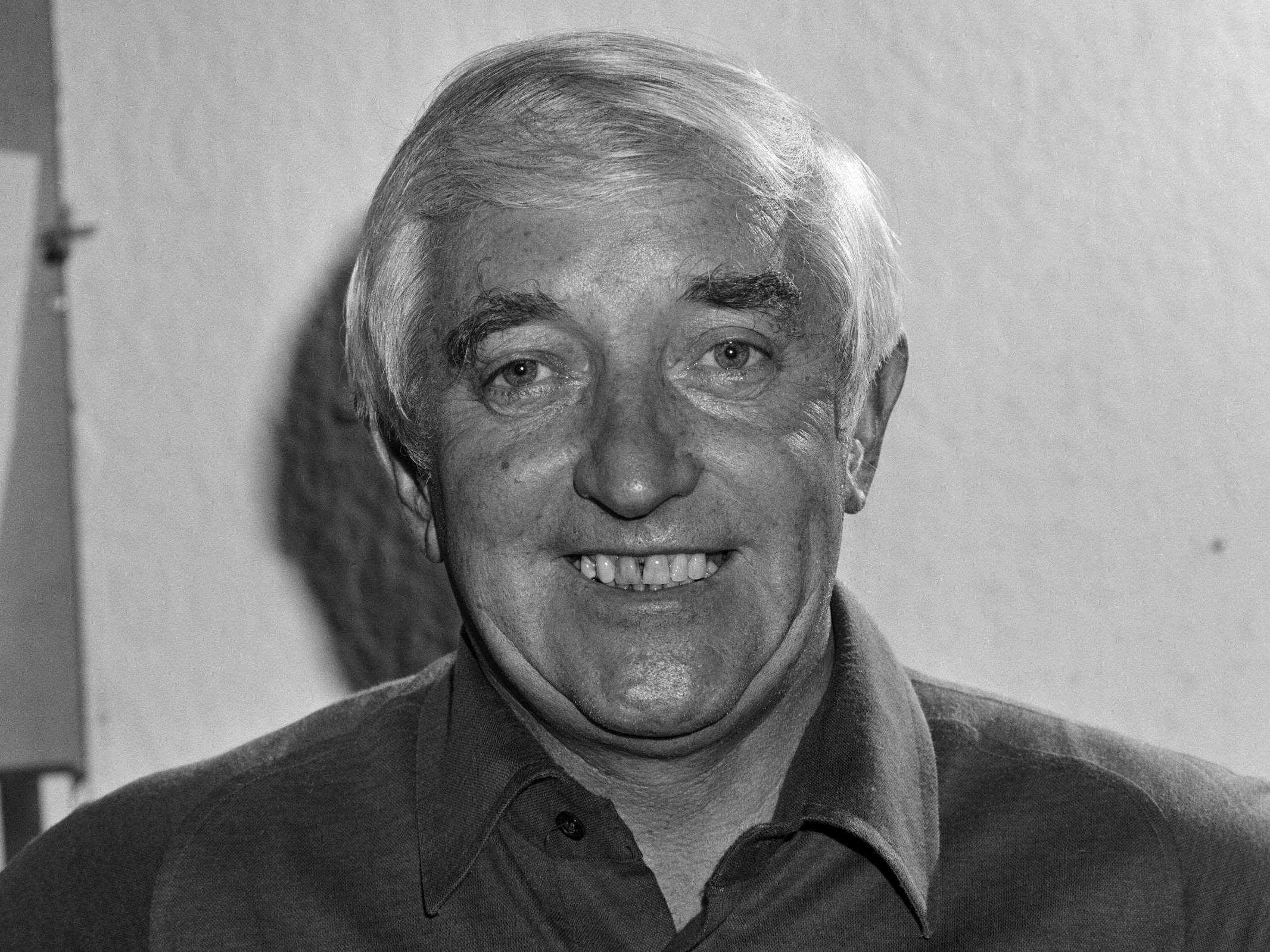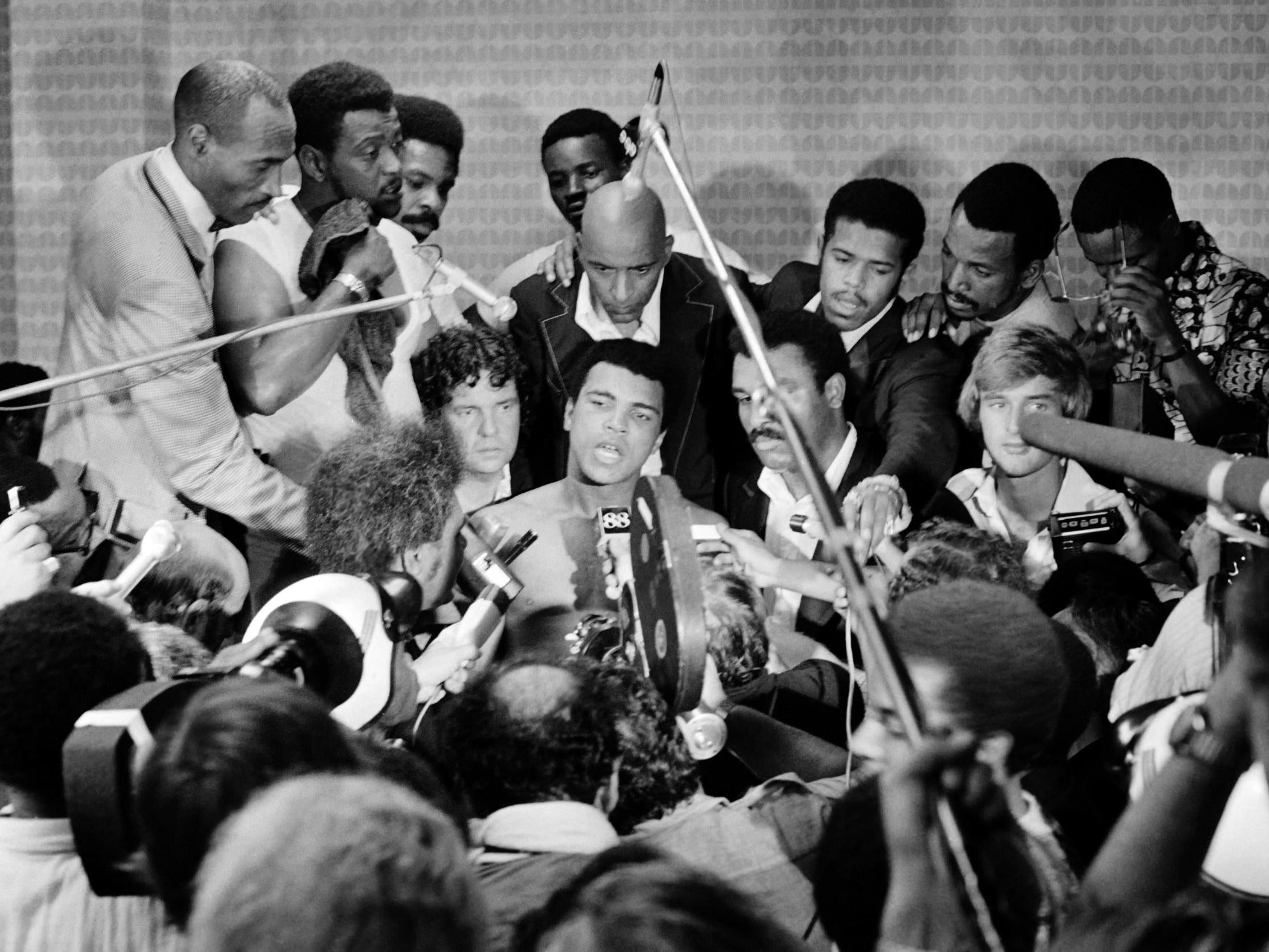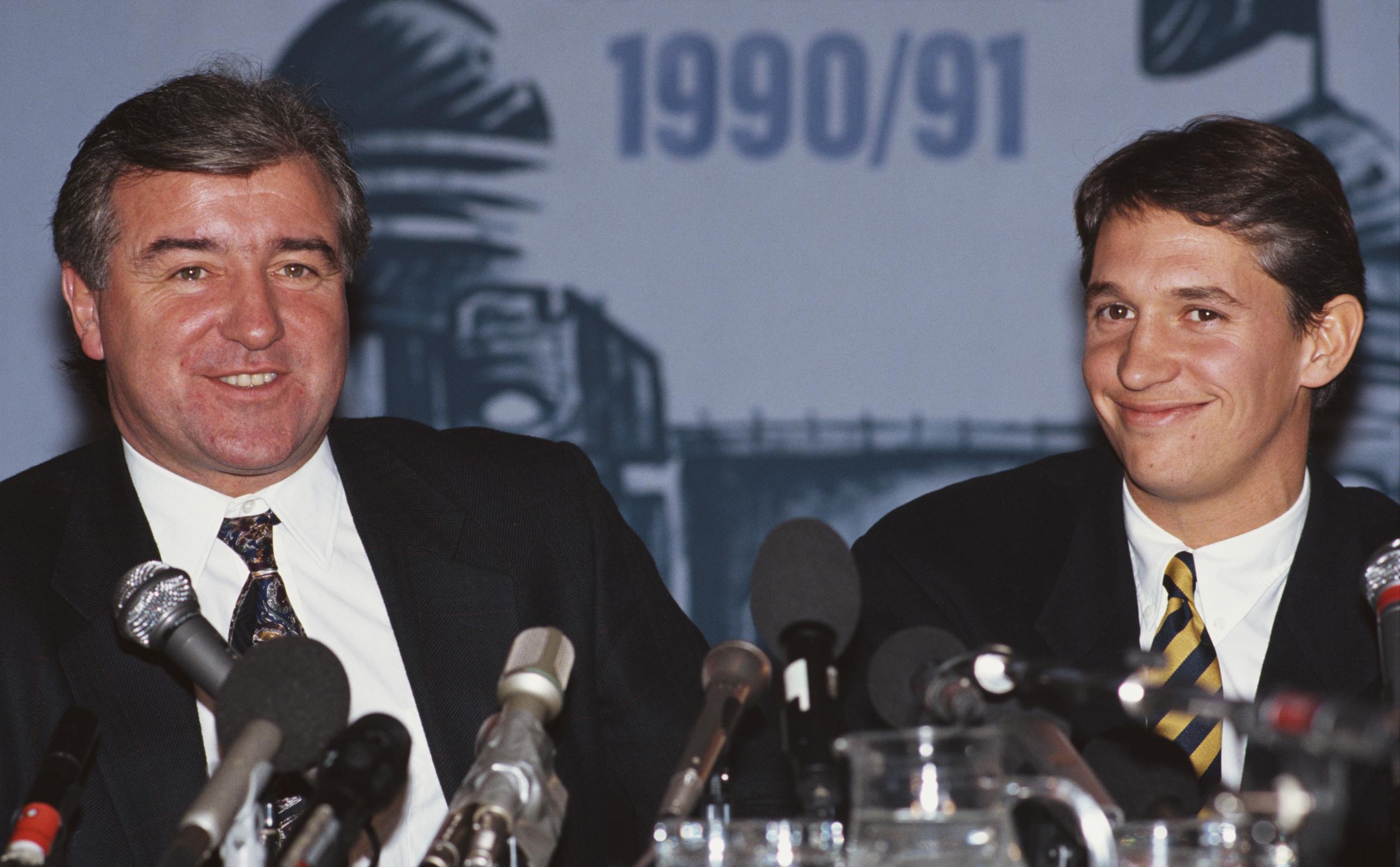Remembering Ken Jones, one of the great voices of modern sports writing
The Welshman leaves a legacy as one of most admired voices in sports journalism. Paul Newman, sports editor of The Independent from 1991 to 2004, looks back at his life

Ken Jones, one of the great figures of modern sports journalism, died on Thursday after a long illness. The former chief sports writer of The Independent was 87.
For decades Jones was a hugely respected voice in the British media, reporting on football, boxing and many other sports from all corners of the globe. Well-informed and with impeccable contacts, he wrote with passion, insight and authority about subjects that he loved.
Kenneth Powell Jones was born in Merthyr Tydfil into a famous Welsh footballing family. Emlyn Jones, Ken’s father, played for Everton alongside Dixie Dean, while Bryn Jones, his uncle, was a Wales international who played for Wolverhampton Wanderers before joining Arsenal in 1938 for a then British record fee of £14,000. Cliff Jones, one of Ken’s cousins, was a goalscoring left-winger who joined Tottenham Hotspur in 1958 for £35,000 from Swansea and became a key member of the Double-winning team of 1961.
Ken played for Southend United and Gravesend & Northfleet before an Achilles injury ended his career. He took his coaching badges but soon decided to pursue a career in sports journalism, though he did make occasional forays back into football.
In 1975, for example, he was asked, as a one-off, to manage the Cyprus team that played England in a friendly at Wembley. England won 5-0, with Malcolm Macdonald scoring all five goals. England were managed by Don Revie, who had become a good friend of Jones while at Leeds United but regarded his work for the opposition in that international match as a betrayal. Their relationship was never the same again.
Jones kept a close association with Tottenham for many years, long after the end of his own playing career. After matches he would join the players for drinks in a private room at a pub near White Hart Lane. He used to say that the day the relationship between footballers and reporters changed was when it was the players who could better afford to buy a round than the journalists they were drinking with.
Jones’s personal background earned respect from many of the people he went on to write about, but it was his honesty and integrity that were even more important in the close relationships he established with many of sport’s leading figures.
It was in football and boxing that he made his biggest mark. Terry Venables, George Graham, Dave Sexton, the former rugby international Cliff Morgan, the world welterweight title contender Colin Jones and the promoter Frank Warren were among those he was especially close to.
He also formed a bond with Muhammad Ali and was ringside when Ali beat George Foreman in the epic “Rumble in the Jungle” in Zaire. It was a measure of the respect Ali had for Jones that the Welshman was one of only two journalists invited to spend time with him at his villa the morning after the fight (the other being Hugh McIlvanney).

Jones’s first staff job in journalism was at the Daily Mirror, where he quickly made his mark as someone who knew his subject inside out and had the ear of many of its most notable figures. He also became a familiar face on BBC television on Saturday afternoons, when he would have to leave whichever match he was covering well before the end in order to give his report to camera in the studio.
He moved to the Sunday Mirror, but shocked his colleagues when he announced in 1986 that he was leaving to become one of the founding journalists at The Independent, where he remained until his retirement. He often said it was the best career move he had ever made.
Recruiting established and respected figures like Jones, along with other eminent journalists such as Peter Jenkins, Tony Bevins, Sebastian Faulks and Sarah Hogg, played a big part in establishing The Independent as a major force. Jones won many awards for his work for the newspaper, including the Sports Writers’ Association’s Doug Gardner Award “for outstanding contribution to sports journalism”.
The transition from a tabloid to a broadsheet (and vice versa) can be a major challenge for many journalists, but Jones took it in his stride. He welcomed the chance to write longer and more considered pieces, without ever losing his nose for a big story.
A personal memory is of sitting with Jones and Venables, who was his guest, at the Football Writers’ Association’s annual dinner two days before the 1991 FA Cup final between Tottenham (who were managed by Venables) and Nottingham Forest.
Venables revealed to Ken that he had fallen out in a big way with Alan Sugar, Tottenham’s chairman. Jones left the dinner to file a story to The Independent about the split, while I attempted to keep Venables talking and away from other journalists. Within a month of Tottenham’s victory over Forest, Venables was no longer their manager.

The ultimate professional, Jones almost never missed a deadline. “If you can’t send the office a good piece on time, send them a bad piece,” he used to tell colleagues, before adding: “Take your work seriously but don’t take yourself too seriously.”
He was a kind and generous colleague, always ready to give help and advice. He would treat you the same whether you were one of his peers at the top of the profession or a humble youngster setting out on your career.
In his later years at The Independent Jones suffered a terrible accident when he fell between the carriages of a slow-moving train at a London station. As a result the lower half of his right arm had to be amputated, but Ken rarely complained, even though he suffered phantom pain in the years that followed. He refused to let the accident damage his lifestyle and was back at work within days. He also learned to play golf and snooker with his one remaining hand.
I spent an afternoon visiting Jones in hospital a day or two after that accident. We barely had time to talk because I spent most of the time fielding phone calls from a succession of people hoping to talk to him. People like Venables and Warren wanted to know how he was faring, as did, if memory serves me correctly, the manager of the Israeli national football team, among many others.
Jones talked about writing his autobiography but, regrettably, never got round to doing so, despite coming up with what would have been a memorable title, “Good Suits and Bad Debts”, which was a reference to a tailoring business he briefly shared with two former footballers.
His death follows those of two of his closest colleagues, James Lawton, who was one of his successors as chief sports writer at The Independent, and Hugh McIlvanney, as well as Andrew Longmore, who was chief sports writer of The Independent on Sunday.
Simon Kelner, who was a founding staff member of The Independent and went on to become its longest-serving editor, said: “Ken’s passing represents another sad landmark for British sports writing. His professionalism, his ability to convey the excitement and moment of any sport, his archive of work and the humanity that shone through in his writing have been equalled by very few in what he would always call ‘a rough old trade’. He was instrumental in establishing the reputation of The Independent in its early days.”
Ken and his widow, Kathleen, had four children, Gareth, Lesley-Ann, Beverley and Samantha. He also leaves behind nine grandchildren and one great grandchild.
Ken Jones, sports writer, born 11 October 1931, died 26 September 2019
Join our commenting forum
Join thought-provoking conversations, follow other Independent readers and see their replies
Comments
Bookmark popover
Removed from bookmarks